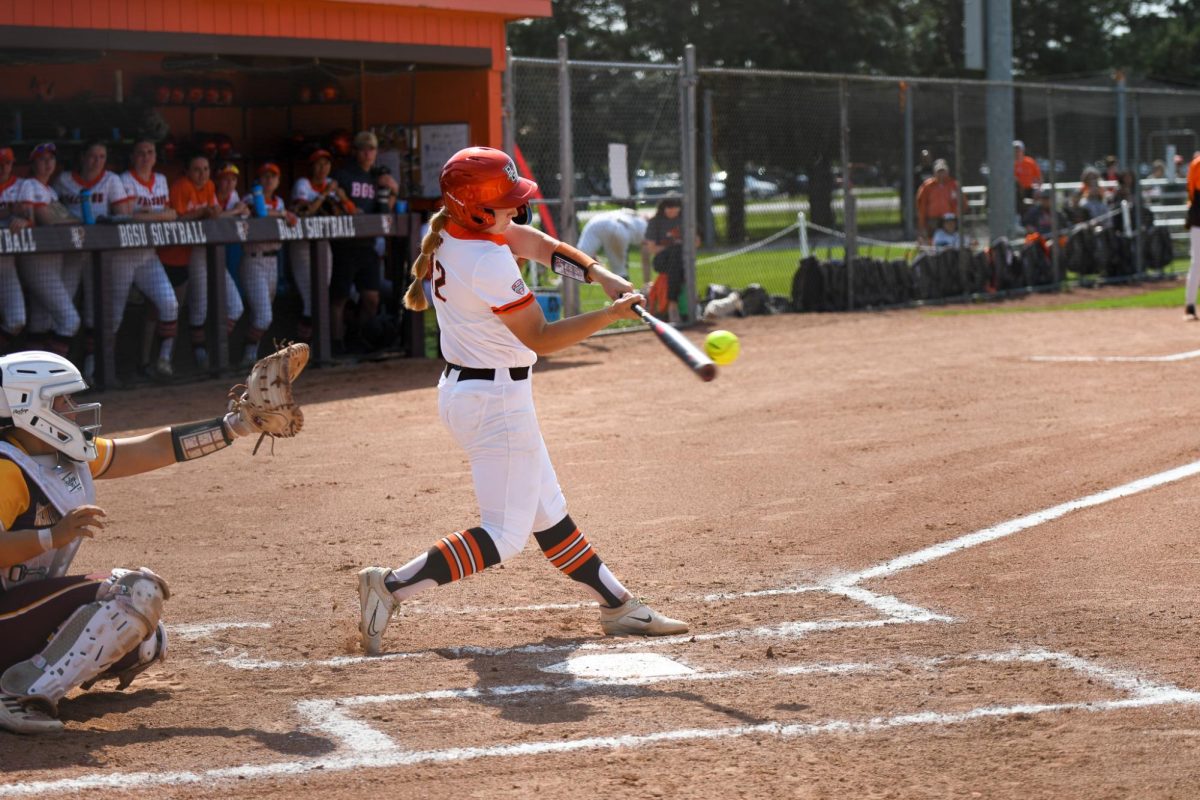Green beer isn’t only for the celebration of Saint Patrick’s Day. It’s also a celebration in itself when made from as much organic material as possible, and can be had any day of the year – if you know where to go. Blackswamp Bootleg, a business in Bowling Green, sells brew kits to help people create their own green beer. If people are interested, they can attempt to make their own eco-friendly beverages using Breiss malts in the kits. Breiss malt is an all-organic American grain produced in Wisconson. Normally, beer is made with water, a starch source, hops (female flower cones) and yeast, all of which are grown with different synthetic chemicals to aid the growing process. However, organic beer is made according to certain production standards that exclude most chemicals normally used in the growing process, making the beer up to 95 percent organic, according to Peak Organic Brewery’s Web site. Peak Organic Brewery, located in Maine, is another company making an effort to go green by brewing organic beer. President and CEO of Peak Organic Jon Cadoux said the green beer doesn’t cause soil degradation and chemical runoff that contaminates water sources and the ecosystem. ‘Peak Organic beer is made without toxic and persistent pesticides and chemical fertilizers,’ he said. ‘Healthier soil grows tastier barley and hops.’ According to the Organic Trade Association, organic beer sales have grown from $9 million in 2003 to $19 million in 2005 and have signaled the start of an organic revolution in the alcohol industry. Many companies have started promoting their desire to go organic, including Anheuser-Busch, which launched its first organic beer in 2006. But Gary Silverman, an environmental science professor at the University, said making products organic isn’t enough. When the products are thrown away into a landfill, they still aren’t composting or decomposing, he said. The way landfills are structured prevents any air or water from getting into the materials thrown away, which then prevents them from decomposing, whether it’s a lettuce leaf or a Styrofoam cup. ‘The best way to help the environment is just to not throw things away,’ he said. ‘If you’re going to pay the extra $2 for the bottle of organic alcohol, don’t waste the effort by putting it into the classic plastic red cup.’ One of the breweries in Ohio attempting to go the extra step is the Great Lakes Brewing Company, which started in 1988 and has since striven to be a zero waste company. While Great Lakes uses conventionally grown products in its beer, the company uses organic food in its pubs in Cleveland – including organic mushrooms, all natural meats, dairy and produce. ‘ ‘Thirty percent of all the food we buy is organic food which is grown in Northeast Ohio,’ Brewer Saul Kliorys said. ‘We’re also growing our own food, all of which is organic.’ Along with these initiatives, the company recycles and makes sure all of its newsletters, menus, napkins and packaging are made with 100 percent recycled material. In addition, Great Lakes uses a delivery truck called ‘The Fatty Wagon,’ which runs strictly on vegetable oil. But beer isn’t the only beverage going all-organic. There are also many different vineyards growing organic wine. There has even recently been the development of many different types of organic hard liquor including Orange V Vodka, 4 Copas Tequila, Papagayo Organic Spiced Rum and Juniper Green Gin, all of which are sold in the U.S. But regardless of what substance is considered eco-friendly, going organic is still beneficial to the environment. ‘When [companies go organic] it helps with the long term fertility of the soil,’ Silverman said. ‘It reduces the amount of chemicals which are put back into the environment by using manure.’ According to Silverman, one of the best things we can do for the environment is to support people and companies who are in favor of reducing everyone’s ‘carbon footprint,’ the mark that people leave on the environment after they’re gone. ‘We need to vote people in office who support the reduction of the carbon footprint,’ Silverman said. ‘We need to make it a priority to support the companies who strive to be green.’





















